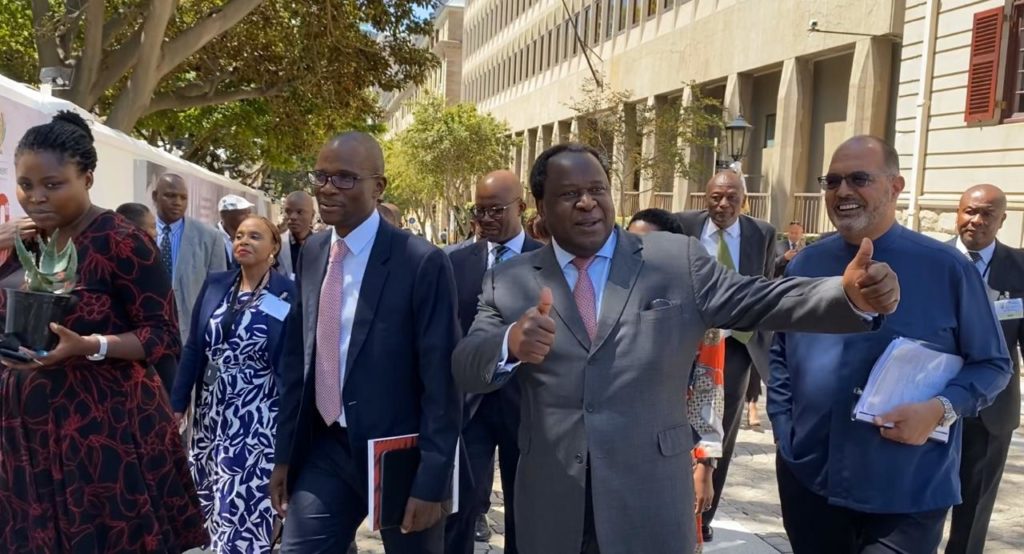JOHANNESBURG – Finance Minister Tito Mboweni’s emergency Budget has received a $1 billion (R17.3bn) boost as he prepares to reprioritise R130bn to fund part of the government’s R500bn stimulus package to respond to Coved-19 fallout.
South Africa has the highest number of Covid-19 cases on the continent, and its health-care infrastructure is under pressure.
The lockdown measures to curb the spread of the pandemic have crippled the economy, and gross domestic product (GDP) is forecast to shrink by double digits.
NDB vice-president and chief operations officer Xian Zhu said the loan would assist the government to roll out health care and provide a social safety net.
“The NDB’s assistance will address urgent health needs in South Africa to overcome the Covid-19 pandemic and help mitigate socio-economic impacts on the most vulnerable populations,” Zhu said.
Mboweni has warned that the country needs to slow down its reliance on debt, as the budget deficit could rise to unsustainable levels, which could push an already weak fiscal position to the brink of a debt crisis.
“A sovereign-debt crisis is a very serious matter, and we are looking it in the eye by 2024 if we do not redo our Budget; if we do not manage our house finances carefully,” Mboweni said.
Investec’s Kamilla Kaplan said the special adjustment Budget was likely to outline a significant deterioration in fiscal ratios.
“We expect a substantial revenue shortfall, increased spending pressures, and a contraction in nominal GDP growth will yield a 2020/21 consolidated Budget deficit of 15 percent of GDP versus National Treasury’s original forecast of a 6.8 percent of GDP deficit,” Kaplan said.
Credit rating agencies have warned that South Africa’s growing debt burden could push the country’s sovereign credit rating deeper into sub-investment status.
Old Mutual’s Johann Els said a debt crisis would force South Africa to seek help from the International Monetary Fund.
“(It) would result in the public service and state pensions being slashed, along with all kinds of structural reform programmes we do not want,” he said.
Mboweni wants all government expenses to be justified for each new period under the proposed zero-based budgeting.
The National Council of Provinces last week passed the 2020 Appropriation Bill without amendment. The bill is intended to appropriate money from the National Revenue Fund for the state’s requirements for the 2020/21 financial year.
Investec’s Lara Hodes said the pandemic would exacerbate the fragility of South Africa’s economic predicament.
“We are anticipating a contraction of around 10.1 percent this year for the domestic economy. However, a high degree of uncertainty exists with regards to the potential containment of the virus and a notably higher outcome could prevail,” Hodes said.
“State-owned entities, notably Eskom, continue to remain a key drag on the fiscus, and government guarantees on their debt is a major concern for rating agencies.”
